myHIN Blog

September 10, 2012
“You Ain’t Crazy: It’s Your Mental Health!”
On Thursday, August 30th, Dr. Payton gave a presentation on campus titled ‘You Ain’t Crazy: It’s Your Mental Health’ where she discussed mental health issues in the African-American community. What stuck out to me the most was the video she showed featuring Terrie Williams where she talks about her book “Black Pain: It Just Looks Like We’re Not Hurting”. Williams talks about how people think they are the only one who is going through something so they keep things bottled in and suffer from depression, hyper tension, and heart disease; or it will come out through self-medicating, gambling, sex, risk behaviors, etc. Risk behaviors can only increase the chance of being exposed to HIV.
For some strange reason, in our community, when we are suffering from something such as depression, we don’t go and get help. Instead, we turn to a friend who ends up giving us bad advice or just decide to seek a spiritual source to resolve our problems. While I am not knocking the latter, sometimes it is good to keep mental and spiritual health issues separate. Unfortunately, I am speaking from experience.
Last semester I had things going on with my family that I had never experienced before and I didn’t have time to react properly. I used my school and extra-curricular activities as a way to block everything out until one day it caught up with me. I literally woke up crying. I didn’t go to class that morning (which added to my stress) and I reached out to one of my sorority sisters who I am close with. Having experienced depression before, she forced me to go to the University Health Center to seek counseling. I was skeptical at first, but I figured it wouldn’t hurt to talk to someone who was a professional. I went to the Health Center and was told that I needed to set up an appointment. I was upset because I didn’t want to wait to talk to someone in seven days; I needed someone at that moment. I was afraid that my natural habit of pushing things away would hinder me from receiving proper help. In any case, I set the appointment and returned a week later. Unfortunately, the counselor was not helpful, but I was proud of myself for taking the initial step.
When I told certain people in my family that I went to see a counselor their response was ‘what do you need to do that for?’. I responded ‘to make sure I don’t go crazy!’. I also told them that I wanted to find another counselor and begin seeing them regularly, again they asked ‘what do you need to do that for?’. I believe that counseling can help you receive an unbiased opinion on how you should move forward. A counselor does not give you advice based on experience. They give you advice based on clinical research that can help you control your reaction to events that you can’t control. Can you control risk behaviors?
If you’re reading this and you have something that you are dealing with, seek help. More than likely you are not alone in the matter. If you need motivation, watch the video below featuring Terry Williams who also gives her personal testimony about battling with depression.
For up-to-date information, follow @myhealthimpact on Twitter!
Share
Comments
comments powered by DisqusIn Partnership with: Poole College of Management, College of Humanities and Social Sciences, National Science Foundation, Penn State
Take Action, Get Tested: Find Your Local Testing Center Why Get Tested?
